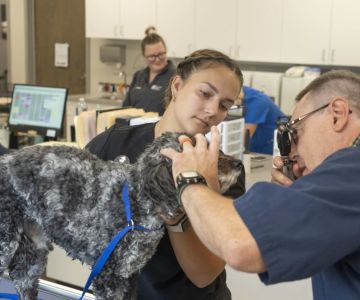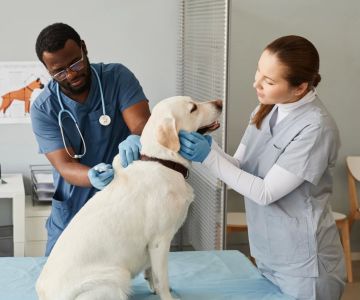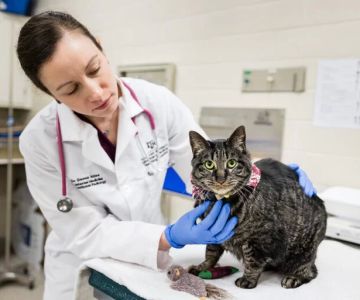- 1-Overview-Requirements
- 2-Educational-Pathway
- 3-Vet-School-Admission-Requirements
- 4-Licensing-and-Certification
- 5-Skills-and-Personal-Qualities
- 6-Career-Challenges-and-Rewards
- 7-Tips-for-Aspiring-Veterinarians
- 8-Conclusion-and-Next-Steps
1. Overview of Requirements for Becoming a Veterinarian
Becoming a veterinarian requires a blend of formal education, practical training, and licensing. It is a demanding but rewarding career that involves extensive study and hands-on experience. The process ensures that veterinarians have the knowledge and skills necessary to provide expert animal care. Understanding what are the requirements for becoming a veterinarian can help aspiring professionals plan their educational and career paths efficiently.
This overview introduces the key milestones and expectations in veterinary career development.
2. Educational Pathway to Veterinary Medicine
The foundation of becoming a veterinarian is a strong educational background. Typically, this starts with obtaining a bachelor’s degree, often in a science-related field like biology, animal science, or chemistry. Courses in anatomy, physiology, microbiology, and chemistry prepare students for vet school. Afterward, prospective veterinarians must attend an accredited veterinary college, which usually takes four years and culminates in a Doctor of Veterinary Medicine (DVM) degree.
Throughout education, students gain both theoretical knowledge and practical skills essential for veterinary practice.
3. Vet School Admission Requirements
Admission to veterinary school is highly competitive. Applicants must meet strict prerequisites, including specific coursework, a strong GPA, and often experience with animals through volunteering or internships. Some schools require GRE scores and letters of recommendation. Demonstrating a passion for animal care and commitment to the profession can set candidates apart.
Understanding vet school admission requirements is crucial for successfully entering the veterinary field.
4. Licensing and Certification
After completing veterinary school, graduates must pass the North American Veterinary Licensing Examination (NAVLE) to practice legally in the United States. Some states have additional requirements such as jurisprudence exams or background checks. Continuing education is often necessary to maintain licensure and stay updated with medical advancements. Licensing ensures that veterinarians adhere to professional standards and provide safe animal care.
This phase guarantees that veterinarians meet legal and ethical standards to serve their communities.
5. Skills and Personal Qualities Needed
Beyond formal education, successful veterinarians possess strong communication skills, empathy, problem-solving abilities, and physical stamina. Working with animals and their owners requires patience, compassion, and the ability to make critical decisions under pressure. These personal qualities complement technical expertise and enhance the veterinarian-client relationship.
Developing these traits is vital for a fulfilling and effective veterinary career.
6. Career Challenges and Rewards
The path to becoming a veterinarian can be challenging, with demanding studies and emotional situations. However, the rewards include making a significant difference in animal health and welfare, continuous learning opportunities, and job stability. Veterinarians often share stories of saving lives and building strong bonds with animals and their families, which fuel their passion for the profession.
Recognizing both challenges and rewards prepares candidates mentally and emotionally for the journey ahead.
7. Tips for Aspiring Veterinarians
For those wondering what are the requirements for becoming a veterinarian, early preparation is key. Focus on excelling academically, gaining animal experience, and seeking mentorship from practicing vets. Exploring resources and websites dedicated to veterinary careers can provide guidance and support. Staying committed and informed helps navigate the competitive vet school admissions and licensing processes.
These strategies enhance chances of success and readiness for the veterinary profession.
8. Conclusion and Next Steps
Understanding what are the requirements for becoming a veterinarian is the first step toward a meaningful career in animal health. The process involves rigorous education, licensing, and personal growth but offers profound rewards. For those passionate about veterinary medicine, planning carefully and seeking reliable resources is essential. To explore veterinary programs, study guides, or professional advice, visit our recommended platform for the best products, services, and expert insights.
Start your journey confidently today by embracing the requirements and opportunities in veterinary medicine.











